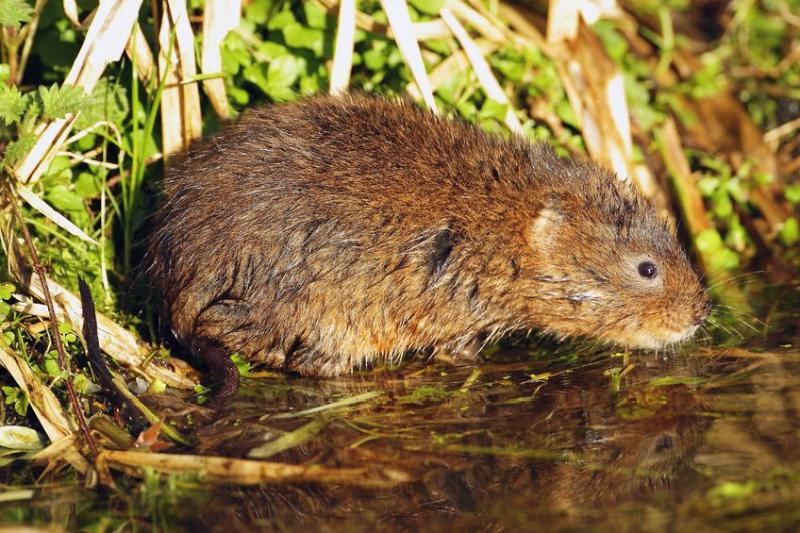
Landowners and farmers have been urged to manage river bank habitats to help the British water vole, which has seen a 30 percent decline over ten years.
New analysis of data collected over ten years by a network of experts led by The Wildlife Trusts has revealed that water vole distribution has declined dramatically.
There has been a 30% decline in the places where these river mammals once lived across England and Wales during the survey period 2006 - 2015.
While the new analysis reveals a slight increase in distribution in recent years – thanks to successful conservation efforts – the full data covering the whole ten years paints a bleak picture.
Conservation efforts have been made to ensure a future for this mammal. The Wildlife Trusts, landowners and farmers carry out river restoration and reintroductions of water voles across the UK.
At a local level, these projects appear to have been successful; however, these successes are not enough to reverse the national distribution trends.
Rapid decline
Habitat loss, water pollution and built development have led to massive declines in the number of water voles since the 1960s – this has been exacerbated by predation by North American mink which were introduced to Britain for fur farming in the twentieth century.
The water vole is the UK’s most rapidly declining mammal and has been lost from 94% of places where they were once prevalent.
The latest data revealing a ten year decline of 30% shows an ever-worsening situation: their range is continuing to contract.
Landowners and farmers have been urged to manage river bank habitat to help water vole, e.g. provide generous buffer strips to provide shelter and feeding areas; create soft edges to river banks for water voles to create burrows in, and avoid using heavy machinery close to the edge of watercourses.
Ellie Brodie, Senior Policy Manager for The Wildlife Trusts, says water voles are an “essential part” of wild and watery places.
“It’s terribly sad that we’re continuing to witness huge declines of this much-loved mammal,” Ms Brodie said.
“The Wildlife Trusts and others are working hard to help bring them back again and care for the places that they need to survive – but much more is needed if we’re going to stop this charismatic creature disappearing altogether.”
